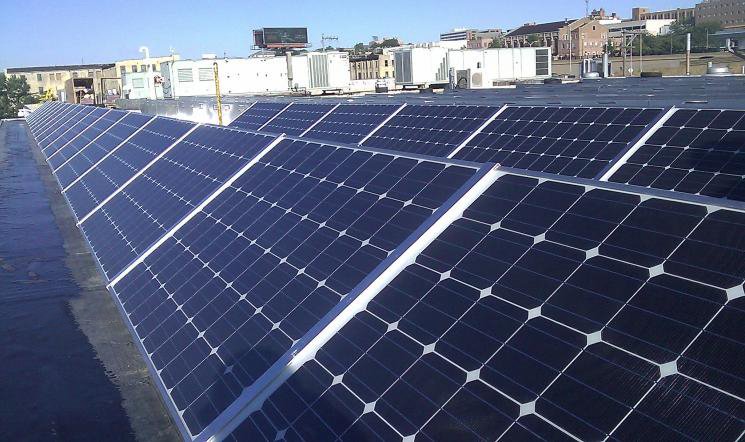Member/Partner News
Solar photovoltaic surpasses 7 gigawatts in Brazil, ABSOLAR informs

Since 2012, solar brought more than R$ 35 billion in new investments to the country, creating more than 210 thousand accumulated jobs
New analysis by the Brazilian Solar Photovoltaic Energy Association (ABSOLAR) points out that Brazil has just surpassed the historic milestone of 7 gigawatts (GW) of solar photovoltaic (PV) operational installed capacity, in large power plants and small and medium-scale systems installed on rooftops, facades and plots of land. Since 2012, the source has brought more than R$ 35 billion in new investments to the country and has generated more than 210 thousand accumulated jobs.
In the centralized generation segment, Brazil has an installed capacity of 3.0 GW in solar PV power plants, which represents 1.6% of the country´s electricity matrix. In 2019, solar PV energy was the most competitive among all renewable sources in the two New Energy Auctions hosted by the government that year, A-4 and A-6, with average prices below US$ 21.00/MWh.
Large-scale solar PV is currently the seventh largest power source in Brazil, with power plants in operation in nine Brazilian states, in the Northeastern (Bahia, Ceará, Paraíba, Pernambuco, Piauí and Rio Grande do Norte), Southeastern (Minas Gerais and São Paulo) and Central-Western (Tocantins) regions. Accumulated investments in this segment surpass R$ 15 billion, with an additional R$ 10 billion already contracted and to be implemented by 2025.
In the distributed generation segment, solar PV reached an installed capacity of 4.0 GW. Since 2012, this brought to Brazil over R$ 20 billion in new investments, spread throughout the five national regions. Solar PV leads the distributed generation segment by a wide margin, representing more than 99.9% of the number of distributed generation systems and 97.0% of its installed capacity in the country.
Residential consumers lead the number of installed systems, representing 72.8% of the total. They are followed by companies in the commercial and services sectors (17.3%), rural consumers (7.0%), industries (2.5%), public buildings (0.4%) and other kinds, such as public services (0.03%) and public lighting (0.01%).
In terms of installed capacity, consumers in the commercial and services sectors lead the use of solar photovoltaic energy, with 38.5% of the installed capacity in the country, closely followed by residential consumers (38.0%), rural consumers (13.2%), industries (8.9%), public buildings (1.2%) and other kinds, such as public services (0.1%) and public lighting (0.02%).

Source: ANEEL / ABSOLAR, 2020. Last update: November 24th, 2020.
According to ABSOLAR, there are more than 333 thousand solar PV systems connected to the grid in Brazil, bringing financial savings and improved environmental sustainability to over 415 thousand consumer units. Solar PV technology is present in all Brazilian states, with the leaders in installed capacity being, respectively: Minas Gerais (790.7 MW), São Paulo (509.7 MW), Rio Grande do Sul (503.7 MW), Mato Grosso (291.0 MW) and Paraná (277.1 MW).
To ABSOLAR’s CEO, Rodrigo Sauaia, Brazil is a natural solar nation, with outstanding technical and economic potential to become a world leader in the sector. “Solar PV reduces the electricity cost for the population, increases the competitiveness of companies and unburdens the budget of the public sector, bringing benefits to small, medium and large energy consumers in the country”, highlights Sauaia.
“Despite the advancements in the last years, Brazil – which has one of the best solar resources in the planet – still uses a very small share of solar PV, especially in distributed generation, where only 0.5% of the more than 85 million electricity consumers use the sunlight to generate electricity”, states Ronaldo Koloszuk, chairman of ABSOLAR's Board of Administrators. “Solar PV will help accelerate Brazil´s growth, improving both our economy and the environment”, adds Koloszuk.
![Global Solar Council [logo]](/static/images/gsc-logo-horizontal.svg)